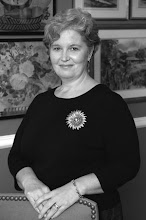The dirty little secret in some music circles isn’t what you might think. It’s not drugs, groupies, or feuding band members. It’s dystonia.
Although dystonia is considered a rare disorder, professional musicians clearly appear to be at increased risk. Experts have suggested that one in 200 musicians may develop dystonia over the course of his/her career.
Dystonia awareness among musicians has grown over the last decade, but it’s still a topic many affected performers find difficult to talk about publicly. Like individuals with other forms of dystonia, the loss of abilities that once were routine turns a musician’s life and career upside down. Prior to diagnosis, musicians often perceive early symptoms as the result of faulty technique or lack of sufficient preparation. Increasing practice or taking time off does not help, and the symptoms only get worse. Critics may suspect a performer has “lost his chops” or has a substance abuse problem because of uncharacteristically strained or imprecise playing. The fact that symptoms only occur when playing an instrument is one of the most frustrating and baffling aspects of the disorder—but it may also hold the key to better understanding how symptoms occur and how to effectively treat them.
The Dystonia Medical Research Foundation (DMRF) is proud to partner with Musicians With Dystonia to host the first ever Musician’s Dystonia Summit, March 9-10, 2012 in New York, New York. Musicians and researchers are gathering to discuss the latest information on musician’s dystonia, best treatment practices, and future scientific directions.
Musician's dystonia provides an opportunity to better understand all dystonias. There is a clear connection between the onset of dystonia and the intense and lengthy practice of difficult and skilled music over a long period of time. When researchers can “connect the dots” and figure out how this overuse leads to symptoms, this will be a huge breakthrough to better understand the dystonia disease mechanism—and therefore bring us one step closer to better treatments and a cure.
Many thanks to members of the planning committee who have worked diligently to build an outstanding agenda of speakers and bring this special meeting to fruition, including Mahlon DeLong, MD, Glen Estrin , Steven Frucht, MD, Mark Hallett, MD, Billy McLaughlin, and Jan Teller, PhD. We also appreciate the many musicians who are graciously donating their time to share their stories and talents at the Summit. See the DMRF website for a detailed agenda and information on how to register.
Tuesday, February 7, 2012
Subscribe to:
Post Comments (Atom)






No comments:
Post a Comment